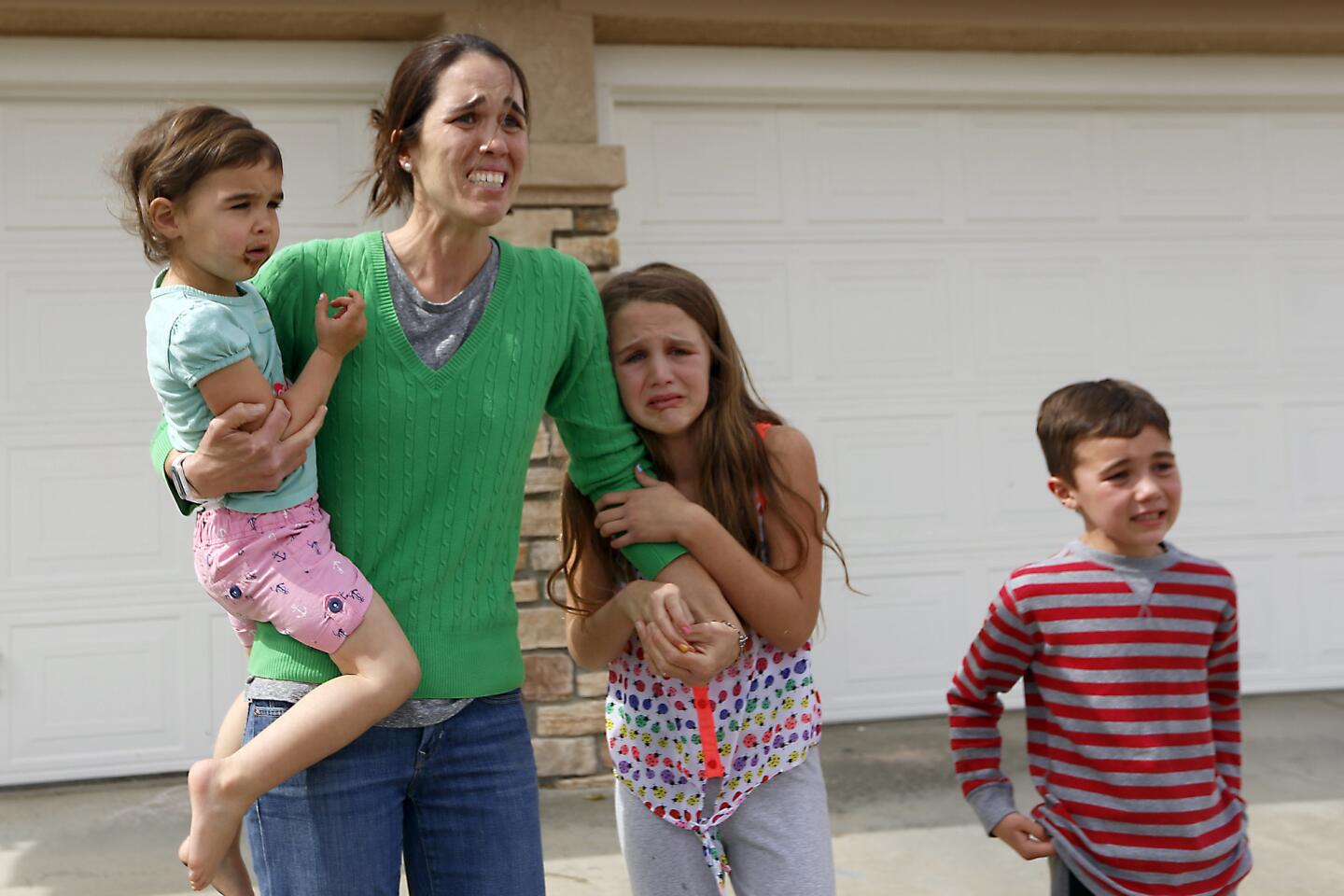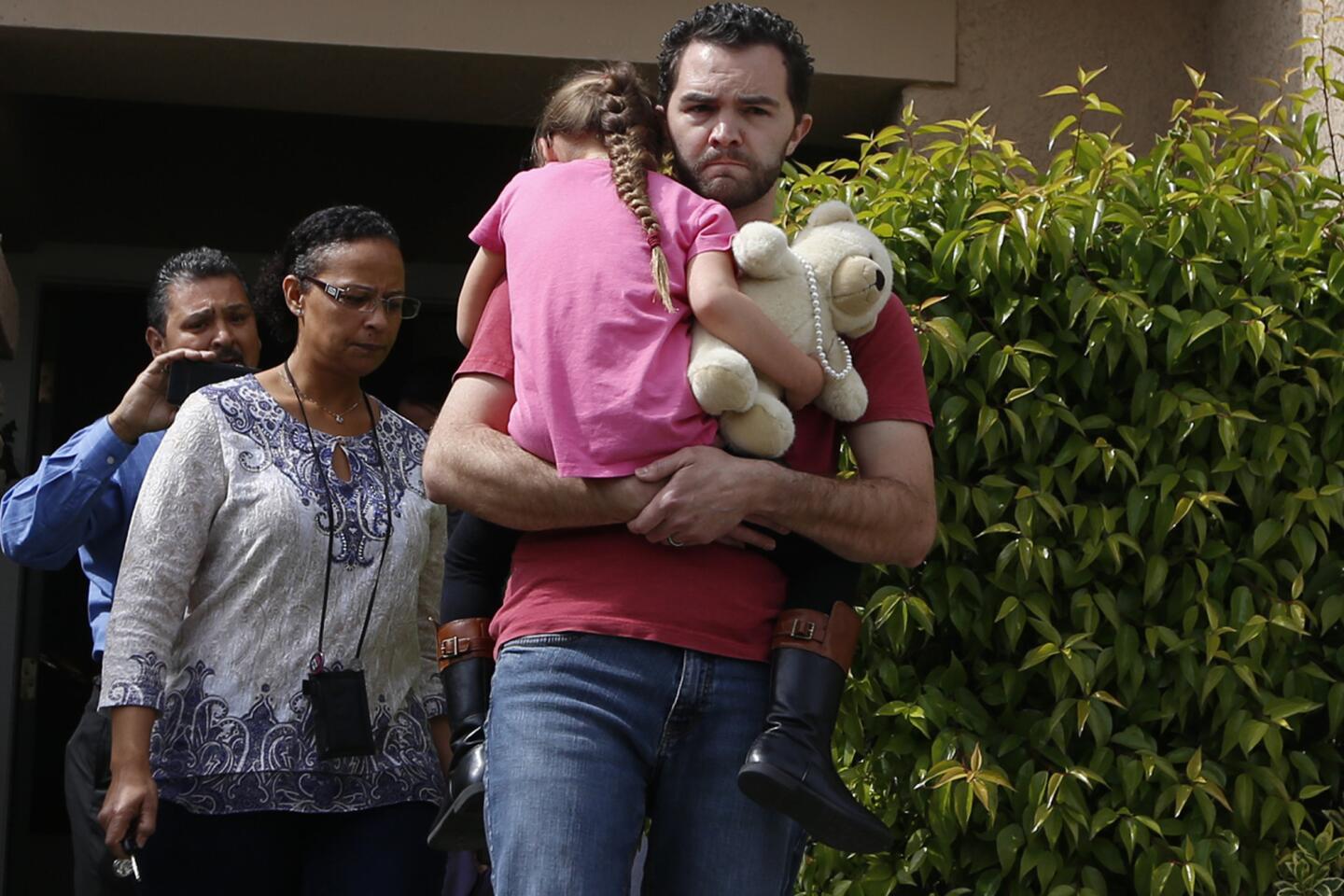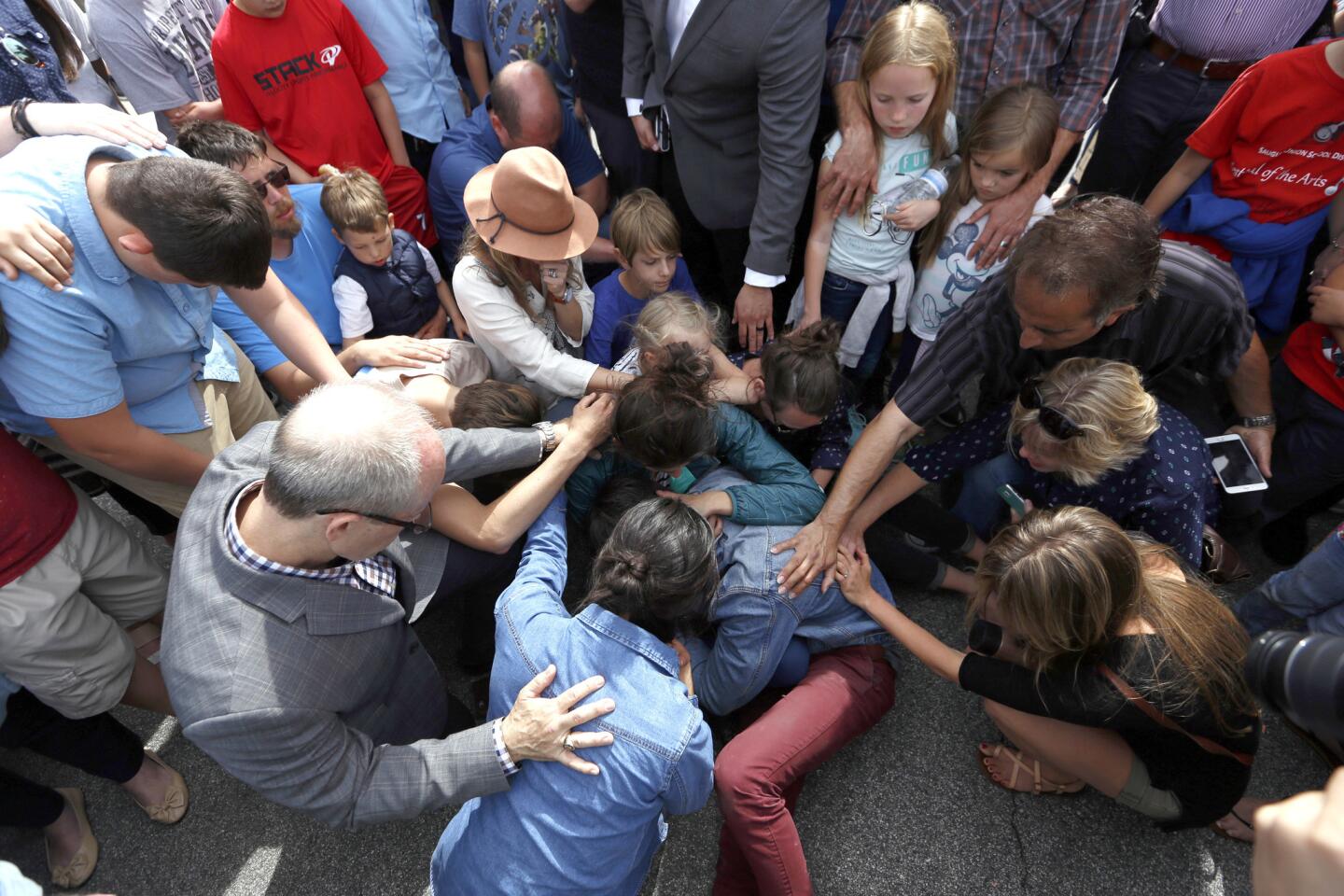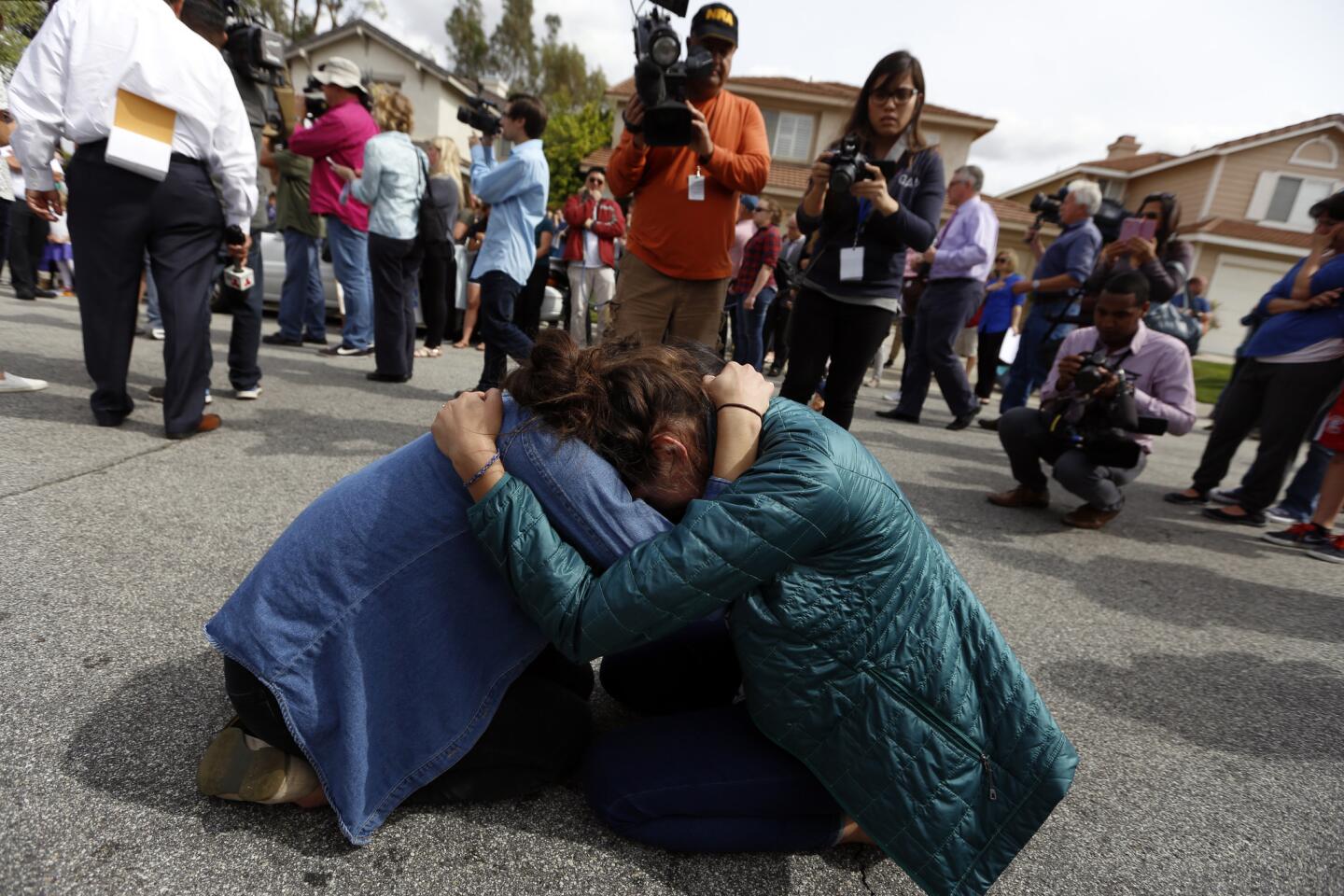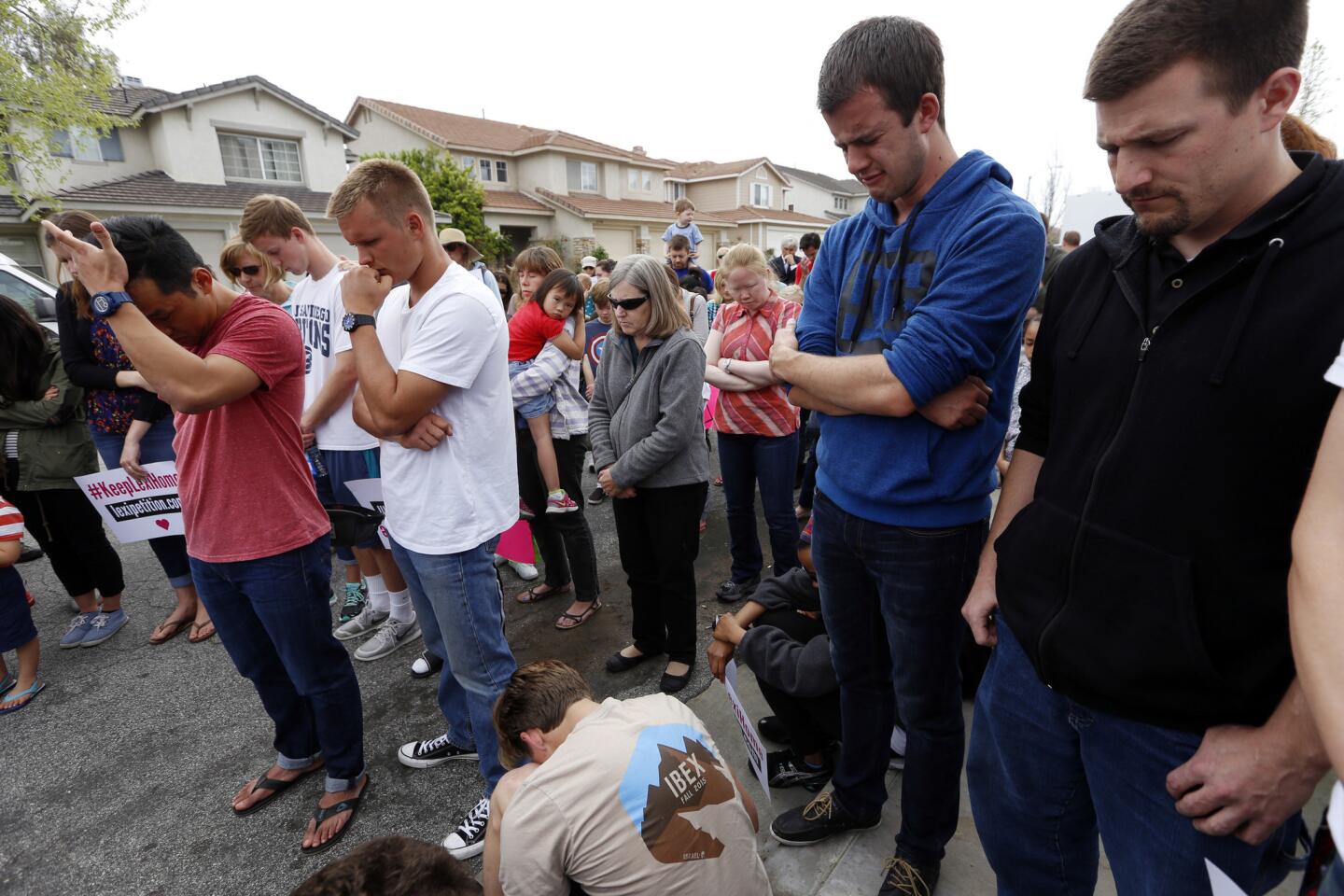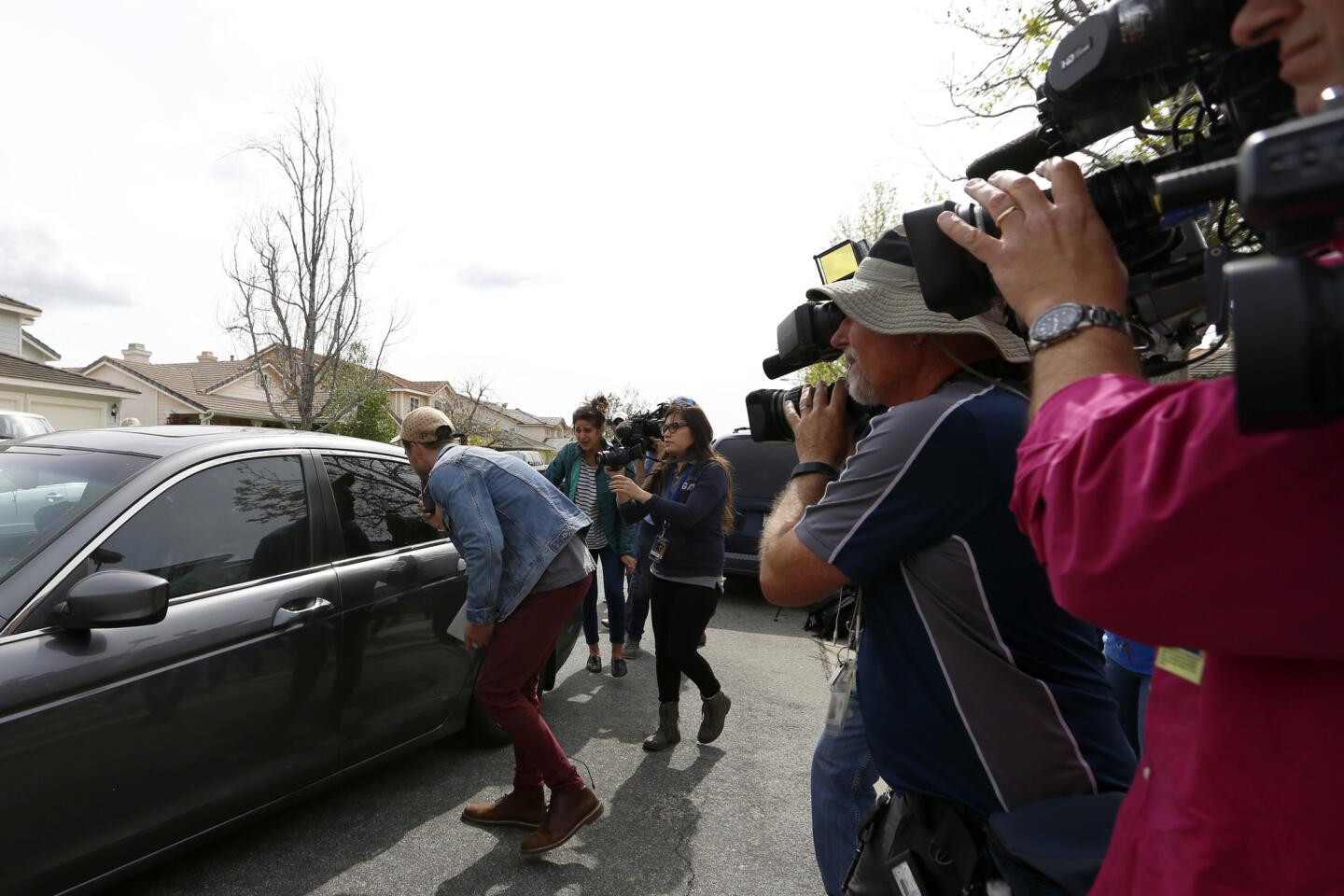Santa Clarita foster parents appeal to state Supreme Court in tribal custody battle
- Share via
The protesters had gathered near the Santa Clarita home by the hundreds, praying aloud for the little girl and her longtime foster parents inside.
They sang “Amazing Grace” and asked God to intervene to keep the 6-year-old girl with her foster family.
But on Monday afternoon, Los Angeles County social workers arrived at the home to carry out a court order that the girl be relocated to live with her extended family members in Utah.
Because the girl is part Choctaw, the federal Indian Child Welfare Act — intended to limit the breakup of Native American families through adoption or foster care placement — applies to her case, the Oklahoma-based Choctaw Nation said in a statement.
Join the conversation on Facebook >>
The dispute echoes numerous recent battles around the nation that have sparked controversy over the rights of adoptive and foster parents and the interests of keeping Native American children within their tribe. The Santa Clarita case drew protesters as well as national media attention.
The girl has lived with foster parents Rusty and Summer Page and their three children for more than four years, Rusty Page said in an interview. She became part of the family, he said, and he and his wife tried unsuccessfully to adopt her.
“We never use the word ‘foster sister,’ ‘foster daughter;’ it’s ‘sister’ and ‘daughter,’” Page, 33, said. “She’s part of our family with everything but her last name.”
Page said that when he and his wife became the girl’s foster parents, she “came to us scared and confused.” Now, he said, she is the “happiest, sweetest, kindest girl you ever met,” who loves to play with the couple’s children and to color and swim.
Page accused the Choctaw Nation of “dictating where this child goes.”
A statement from the tribe said that “from the beginning of this case, the Choctaw Nation advocated for [the girl’s] placement with her family.”
The child’s relatives in Utah have “created a loving relationship with her,” the tribe said. “The Pages were always aware that the goal was to place [the girl] with her family, and her permanent placement has been delayed due to the Pages’ opposition to the Indian Child Welfare Act.”
A Los Angeles County Superior Court judge previously ruled that the girl be placed with relatives in Utah. The Pages tried unsuccessfully multiple times to appeal the decision.
An appellate court stay preventing the removal of the girl from California was lifted Friday when the 2nd District Court of Appeal denied a writ petition filed by the Pages, said Leslie Starr Heimov, executive director of the Children’s Law Center of California, the court-appointed law firm that represents foster youths.
The juvenile court case is confidential.
“We have great compassion and sympathy for the Pages,” Heimov said. “We know that their hearts are breaking, but, unfortunately, that’s the nature of foster care. We ask the adults to love a child as if it’s their own and then to let that child go, and that’s an extremely difficult thing to do.”
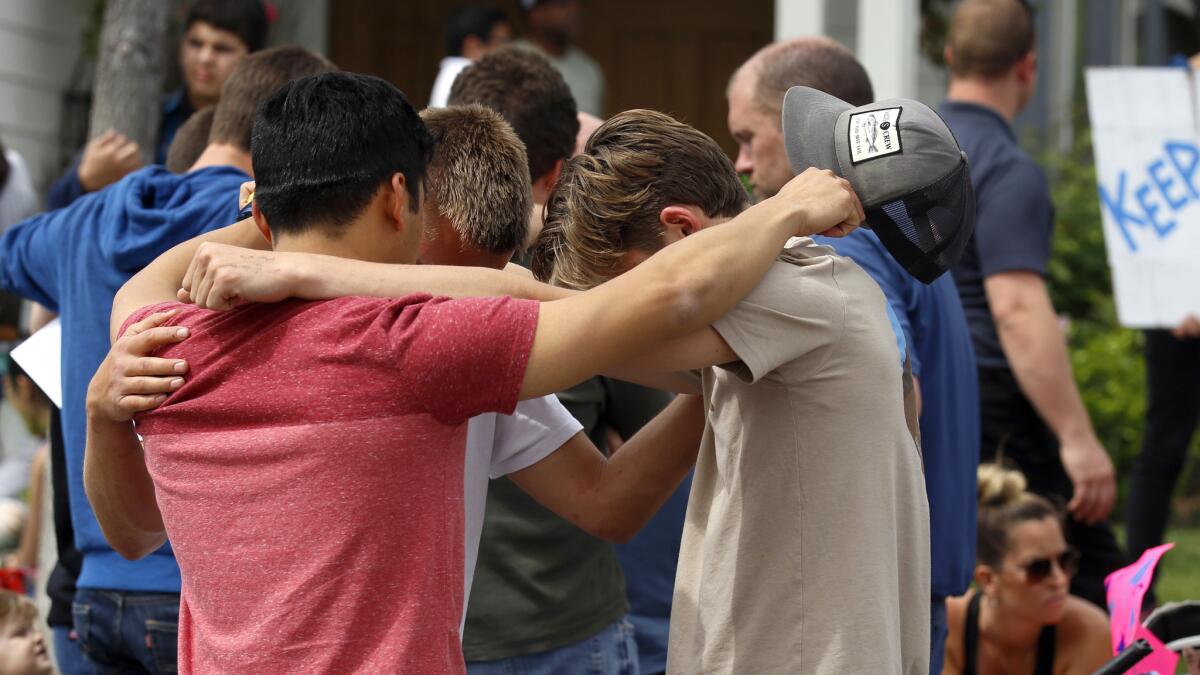
Television and other media covered Monday’s transfer of the child to social workers. Protesters have asked others to join their efforts to reunite the girl with the Page family.
The girl has had regular visits with her out-of-state relatives for some time now, Heimov said. In Utah, she will live with one of her biological sisters. Another sister lives within walking distance, Heimov said.
“There are two families that love her,” she said. “The court has made a decision. We need to follow the law, and we need to enforce the court orders.”
In a statement, Philip Browning, director of the Los Angeles County Department of Children and Family Services, said that “when a court makes an order, we must follow it.”
On Monday, a hush fell over the crowd of protesters when social workers came to the Pages’ front door. A few silent minutes passed before the door was finally opened.
Rusty Page carried the youngster outside. The girl, wearing a pink shirt and a braid in her hair, clutched a brown teddy bear. Placed in the backseat of a social worker’s car, she cried.
Page said that he was ordered by the court not to discuss the situation with the girl and that she had no idea she would be taken away. The protesters gathered a few houses away so she wouldn’t hear or see them.
We ask [foster parents] to love a child as if it’s their own and then to let that child go, and that’s an extremely difficult thing to do.
— Leslie Starr Heimov, executive director of the Children’s Law Center of California
In a statement, the National Indian Child Welfare Assn. criticized the “negative” attention the case has received.
“The purpose of foster care is to provide temporary care for children while families get services and support to reunite with their children, not to fast-track the creation of new families when there is extended family available who want to care for the child,” the association said.
The Page family Monday night released a statement that asked “the people who took our daughter” to “[d]o the right thing and bring [her] back home.”
An attorney for the Pages, Lori Alvino-McGill, said Tuesday night the family this week filed an appeal to the Supreme Court of California, asking that the child remain with them.
“We will continue to expeditiously pursue our appeal through the state courts in California, and, if necessary, to the U.S. Supreme Court,” Alvino-McGill said in a statement in which she decried the Indian Child Welfare Act as a law that is “routinely being misinterpreted, with devastating consequences.”
The Choctaw Nation on Tuesday said many steps had been taken by the tribe to “ensure the best placement” for the child.
An independent clinical psychologist was brought in to guage her ability to transition from her foster family to her Utah relatives, and a California court appointed a marriage and family therapist to perform a child custody evaluation “to assess the mental health and parenting practices of both parties,” the tribe said in a statement.
“The case was decided in the California court system three separate times, with three different trial court judges ruling in favor of [the girl’s] relative in Utah,” the Choctaw Nation said. “We, as a tribe, are required to follow federal law.”
Follow me at @haileybranson / Google+
Times staff photographer Francine Orr contributed to this report.
ALSO
‘Bad Breath Bandit’ strikes again at Northern California bank, police say
Missing for 95 years, wreckage of the Navy tugboat Conestoga is found off California coast
UC regents say anti-Semitism has ‘no place’ on campus but reject blanket censure of anti-Zionism
More to Read
Sign up for Essential California
The most important California stories and recommendations in your inbox every morning.
You may occasionally receive promotional content from the Los Angeles Times.
